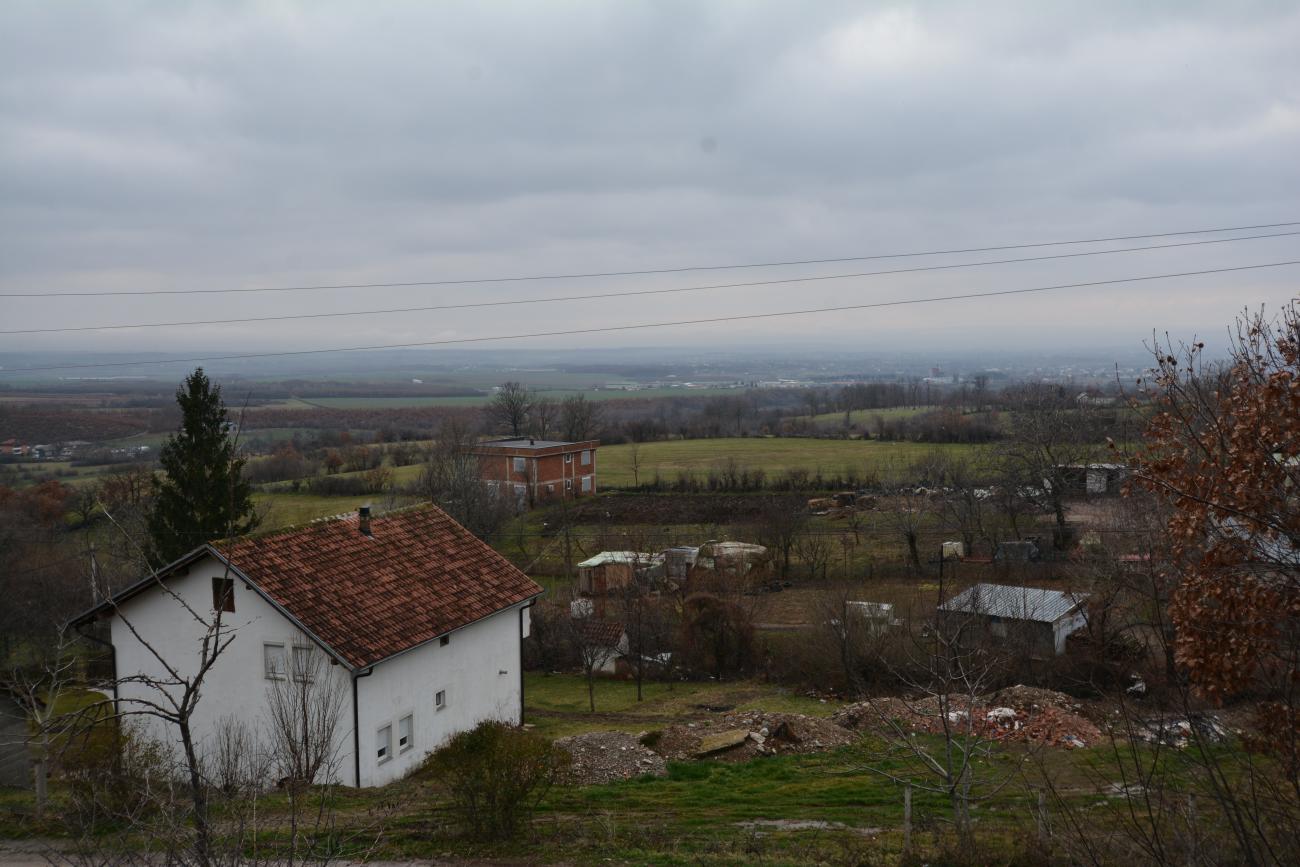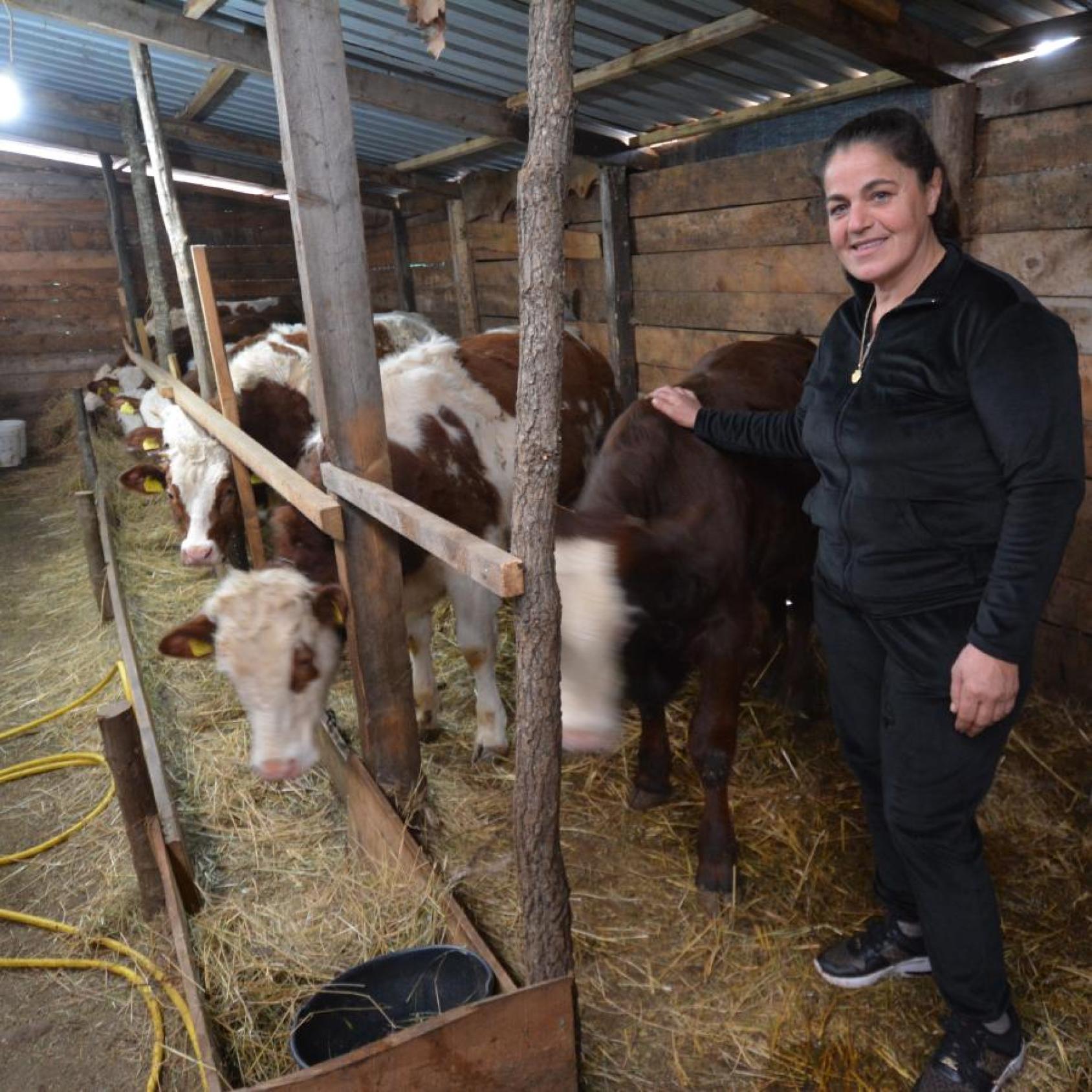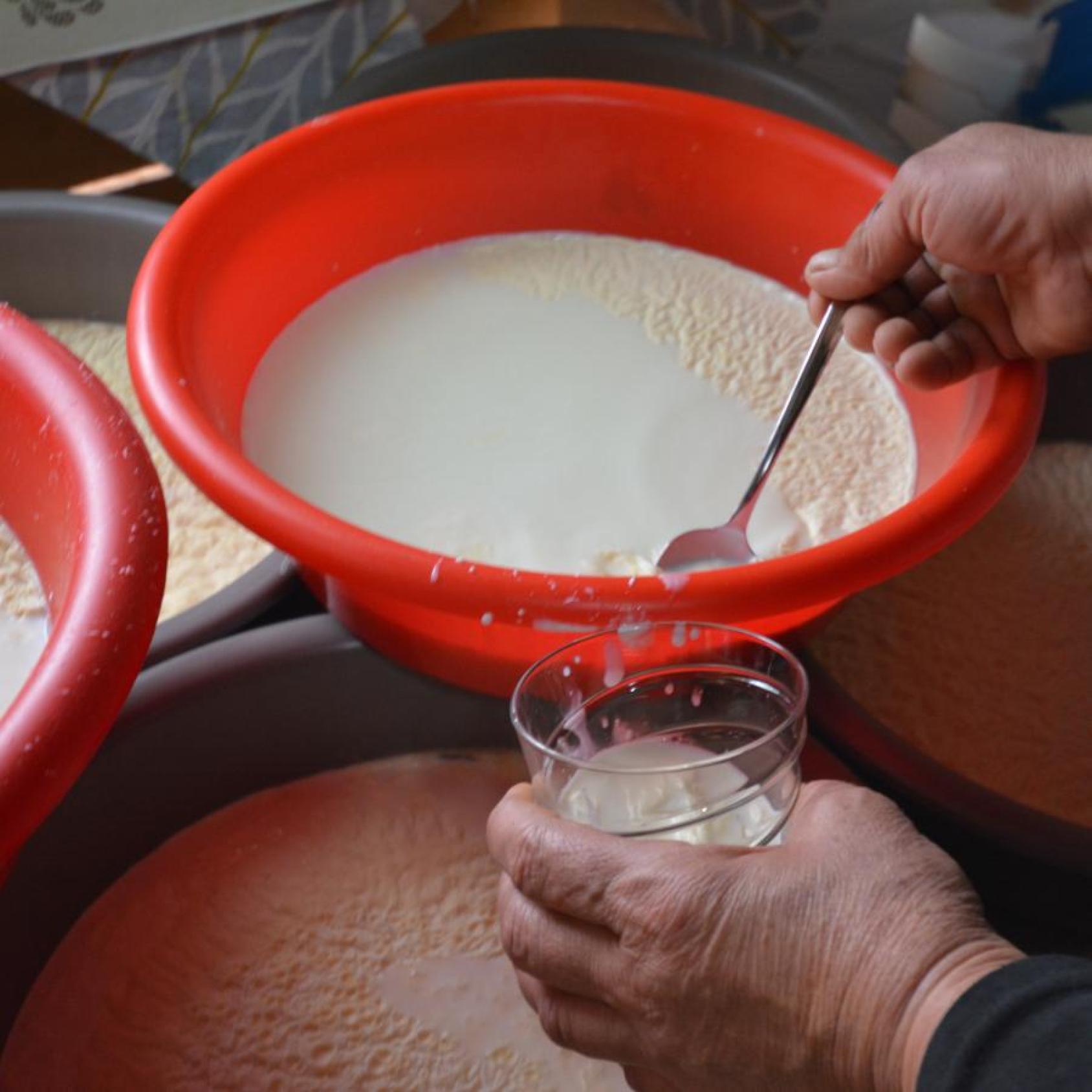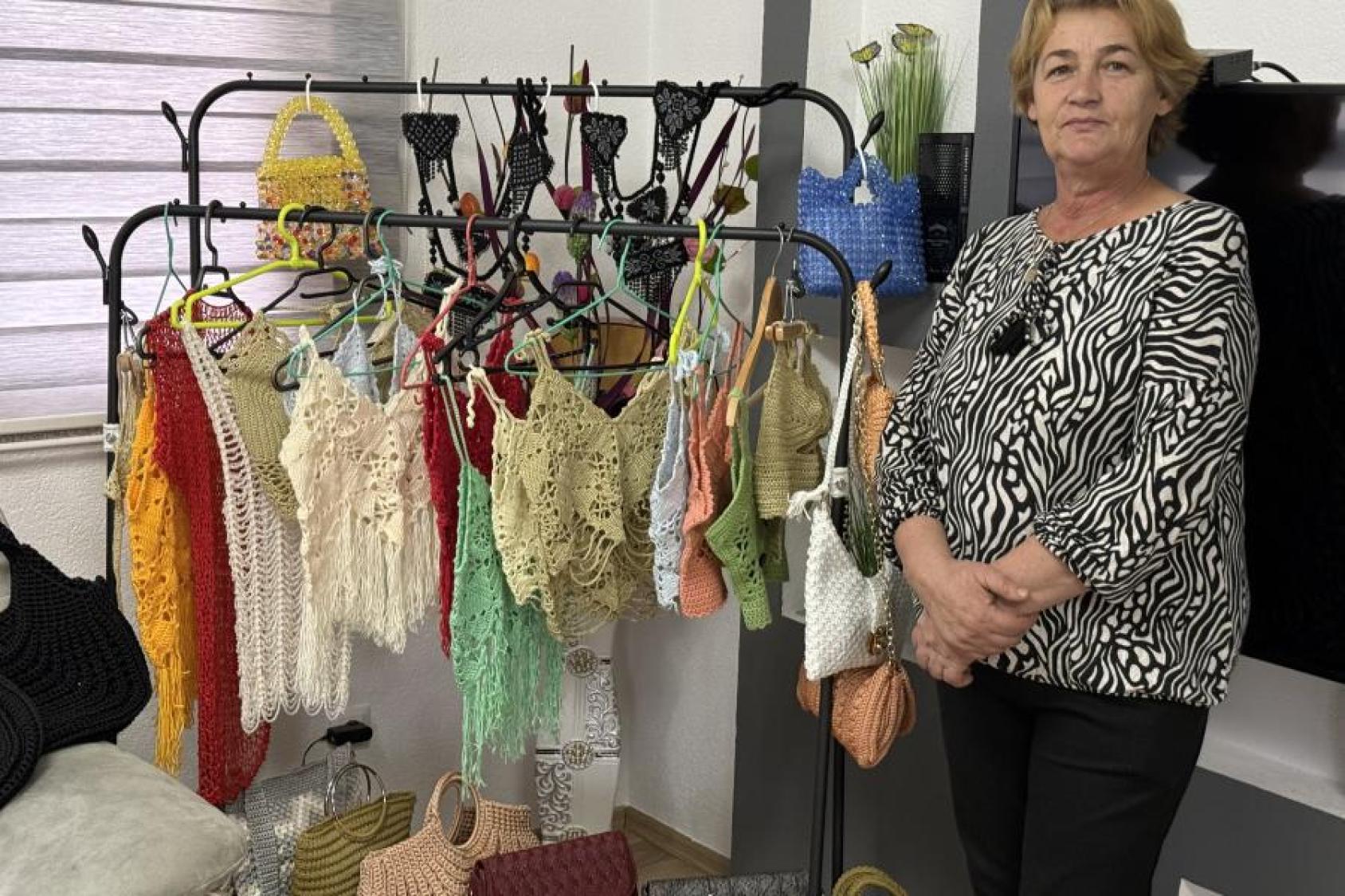Foraging for the Future: Rural Women in Kosovo Embrace Resilient Livelihoods

In the foothills of the Accursed Mountains in Kosovo, where nature and tradition intertwine, rural women are turning their passions into resilient livelihoods. These mountains, with their unique name referring to their steep topography and rugged terrain, are home to many diverse communities.
Meet Lumnije, 55, settled in Mojstir, has been surrounded by livestock for most of her life. After raising her children, she thought about giving up dairy farming—but her love for the work made her stay.
"At first, I just wanted two cows to keep me busy. Then I added a few more, and before I knew it, I had a small dairy business," she says with a laugh.

Today, Lumnije manages 17 cows, producing milk and cheese that supply local restaurants and wholesale buyers. During the summer, she and her family take the cows to the highlands, where fresh air and rich pastures improve milk quality. With her husband’s help on heavy tasks, she focuses on maintaining the best dairy standards.
The UN team in Kosovo is bringing together diverse expertise to help women from climate-vulnerable and marginalized backgrounds to build resilience. Supported by the Food and Agriculture Organization (FAO) and the United Nations Entity for Gender Equality and the Empowerment of Women (UN Women), Lumnije is one among several women supported by an initiative called "Promoting Rural Women's Empowerment", funded by the Austrian Development Agency, a part of the Austrian Development Cooperation. Through a training, Lumnije connected with other women in agriculture, sharing similar challenges and opportunities and expanding their skills and reach of their businesses. For Lumnije, she is currently looking to expand her business with the help of a storage facility for livestock food. She hopes that with the network, the knowledge gained and opportunities for grants, she will be able to achieve this.

“It’s comforting to know that I’m not alone in this,” she says about the women in her cohort. “We learn from each other, whether it’s about farming, business, or just supporting one another.”
One such friend she made through this traininng was Sheribane Rexhaj Blakaj.
Sheribane, 57, from Vrelle, Istog began her journey by collecting wild herbs and plants—a necessity at first, later becoming a passion. What started to provide for her family grew into a specialized skill.

"I suffered a stroke many years ago, and my doctor advised me to stay active. Walking in the mountains, gathering herbs, and crafting macrame became my therapy," she explains.
Over time, she mastered the art of collecting and drying herbs, like cowslip (harvested in early spring), elderflower, Linden flowers and young leaves, St. John’s Wort, common horsetail, wild raspberry leaves, rosehip, juniper and wild mushrooms.
"These are all in high demand and collected by a company that distributes them in the European Union," she says. "One can make a living by collecting and drying wild herbs."
This year, she is experimenting with wild apple vinegar, hoping to expand into other natural food products.
Thanks to the FAO and UN Women training, Sheribane now understands the business side of her work—how to calculate costs, plan for future investments, and seek funding.
“The biggest challenge is drying herbs properly,” she says. “Now I know exactly what kind of equipment I need, and I’m hoping for support to get an industrial dryer.”
Both Lumnije and Sheribane found not just skills but a network of like-minded women through the joint UN initiative. Whether it’s through dairy, herbal products, or handcrafted items, they prove that rural women can be entrepreneurs, innovators, and change-makers. And in the heart of this countryside, their stories of resilience continue to inspire.
"It’s not just about the economy," Lumnije signs off. "It’s about feeling capable, independent, and proud of what we do."
*References to Kosovo on this website shall be understood to be in the context of Security Council Resolution 1244 (1999). For more information about the UN team in Kosovo, please visit kosovoteam.un.org.


























